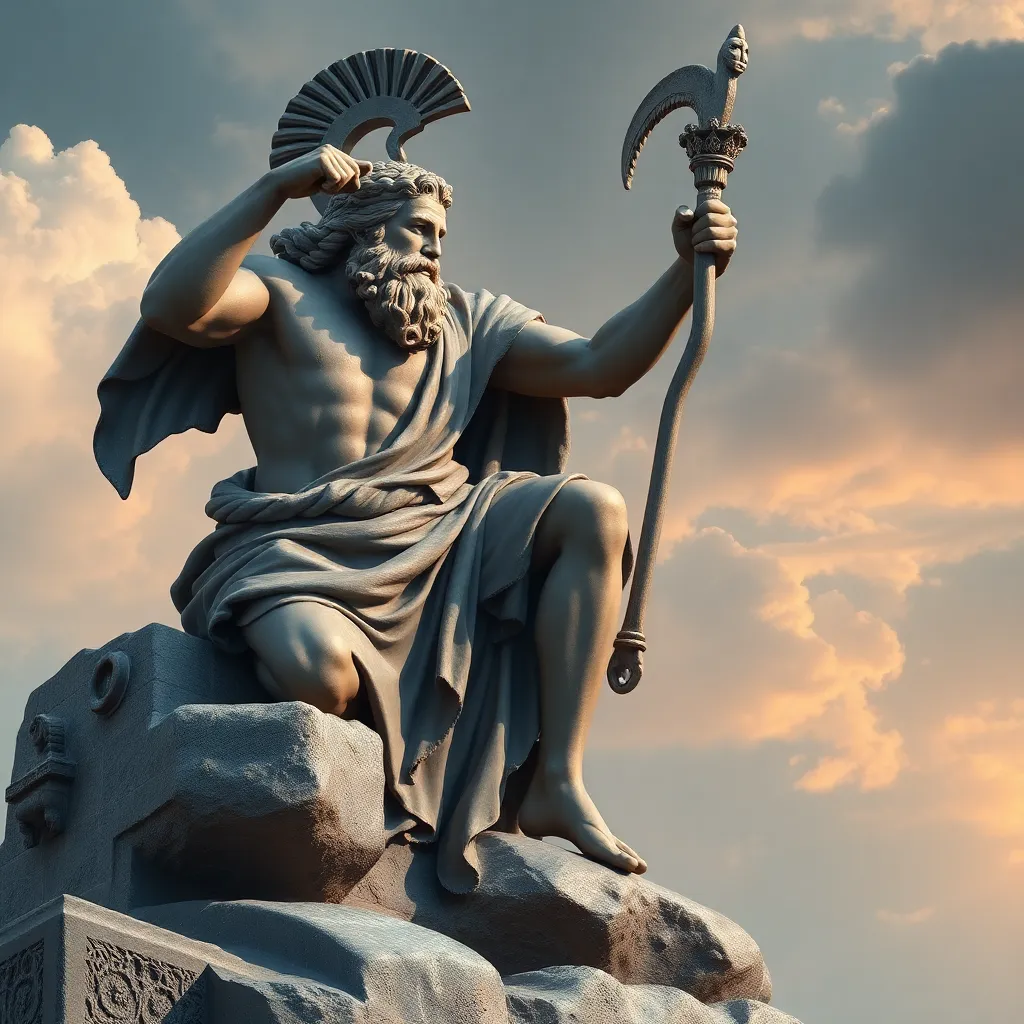Heracles and the Role of Fate in His Triumphs and Tribulations
Introduction to Heracles: The Hero of Greek Mythology
Heracles, known as Hercules in Roman mythology, stands as one of the most celebrated heroes in Greek mythology. Born to Zeus and the mortal Alcmene, Heracles was destined for greatness, yet his life was marked by immense challenges and suffering. His origins are intertwined with themes of fate and destiny, which play a crucial role in shaping his journey. From his incredible strength to his tragic flaws, Heracles embodies the complexities of heroism in the face of inevitable fate.
The Concept of Fate in Greek Culture
In Greek culture, the concept of fate, or Moira, is a central theme that governs the lives of mortals. Fate is often depicted as an unavoidable force, dictating the course of human lives regardless of individual choices. The Moirai, or Fates, are three sisters—Clotho, Lachesis, and Atropos—who weave the threads of destiny for every individual, determining their life span and the events that shape their existence.
The Greeks believed that while humans could exercise free will, they ultimately could not escape their fated paths. This duality of fate and free will is a recurring theme in many myths, including that of Heracles.
Heracles’ Early Life: A Prelude to Suffering
The story of Heracles begins with a prophecy that foretold his greatness, which deeply angered Hera, Zeus’ wife. In her jealousy, she sought to thwart his destiny from the moment of his birth. Heracles was born as a demigod, endowed with extraordinary strength, but his early life was fraught with trials.
Some key events in Heracles’ early life include:
- Hera’s attempt to kill him as an infant by sending two serpents to his cradle, which he famously strangled.
- The persistent enmity from Hera throughout his life, leading to numerous challenges.
- The madness sent by Hera that caused him to kill his wife and children, a pivotal tragedy that set the stage for his future labors.
The Twelve Labors: Fate or Choice?
To atone for his tragic actions, Heracles was tasked with completing the Twelve Labors, a series of seemingly impossible feats. These labors not only served as a path to redemption but also illustrated the tension between fate and free will. The labors included:
- Slaying the Nemean Lion
- Slaying the nine-headed Lernaean Hydra
- Capturing the Golden Hind of Artemis
- Capturing the Erymanthian Boar
- Cleansing the Augean Stables
- Slaying the Stymphalian Birds
- Capturing the Cretan Bull
- Stealing the Mares of Diomedes
- Obtaining the Girdle of Hippolyta
- Obtaining the Cattle of Geryon
- Fetching the Apples of the Hesperides
- Capturing Cerberus, the three-headed dog
Each labor not only tested his strength and courage but also highlighted the role of fate in his life. While he completed these tasks through his own efforts, they were imposed upon him by the oracle of Delphi, suggesting that even his path to redemption was predestined.
Divine Intervention and Fate
The gods played a significant role in Heracles’ journey, often intervening in ways that aligned with or contradicted his fate. For example:
- Zeus sometimes aided Heracles, reinforcing his status as a hero.
- Hera continuously sought to undermine him, representing the challenges of destiny.
- Other gods, like Athena and Hermes, provided guidance and assistance during his trials.
This divine intervention illustrates the complexity of fate in Heracles’ life, showing how the whims of the gods could alter his path while still adhering to the overarching narrative of his destiny.
Heracles’ Personal Struggles: The Human Experience of Fate
Beyond his physical challenges, Heracles faced profound emotional and psychological struggles. His journey is marked by feelings of guilt, rage, and sorrow, particularly after the tragic loss of his family. These personal tribulations reflect broader human experiences with fate:
- The struggle between personal responsibility and the influence of external forces.
- The search for identity in the face of overwhelming destiny.
- The emotional burden of past actions and their consequences.
Heracles’ story encapsulates the human condition, highlighting how each individual navigates their fate while grappling with personal choices and circumstances.
Triumphs and Tragedies: The Duality of Heracles’ Fate
Heracles’ life is a tapestry of triumphs and tragedies, showcasing the duality of fate. His victories in the Twelve Labors solidified his status as a hero, yet they were often overshadowed by personal losses and the wrath of the gods. Some of his key triumphs include:
- Defeating formidable beasts and monsters.
- Achieving immortality and a place among the gods after his death.
- Establishing a legacy as a symbol of strength and perseverance.
However, his tragedies, such as the loss of his family and his eventual madness, serve as reminders of the cyclical nature of life, where triumphs can be fleeting and often lead to new challenges.
Conclusion: Heracles as a Symbol of Fate’s Complexity
Heracles stands as a powerful symbol of the interplay between fate and human agency. His life story reflects the complexities of fate in Greek mythology, where destiny is both a guiding force and a source of suffering. Through his trials and tribulations, Heracles embodies the struggle of humanity to navigate the challenges of existence while grappling with the inevitability of fate.
Ultimately, Heracles’ legacy endures as a testament to the human spirit’s resilience in the face of destiny, reminding us that while we may not control our fates, we can still strive to shape our stories through courage and perseverance.




